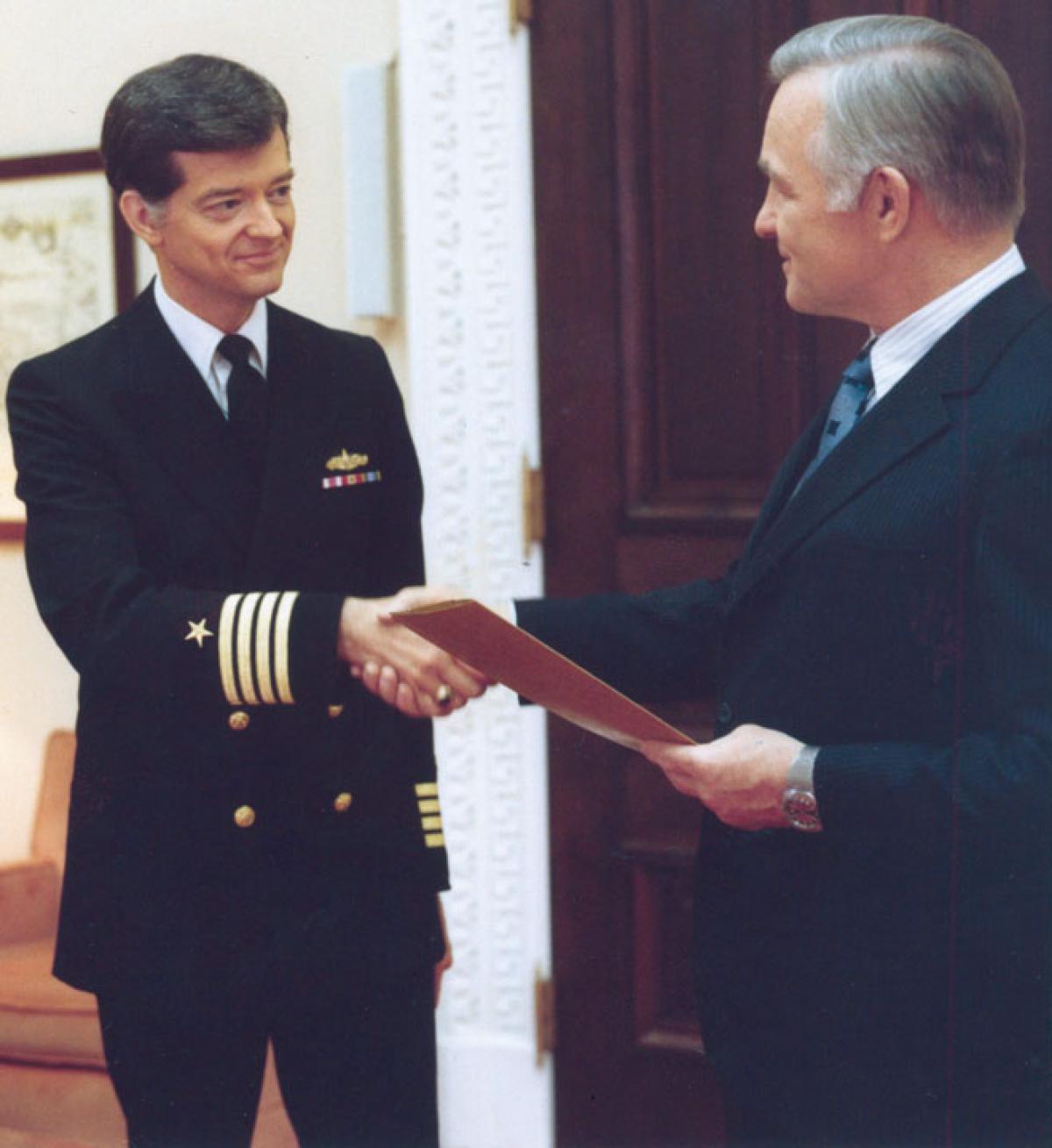As a retired Navy captain, George Thibault is no stranger to the Navy’s core values of honor, courage, and commitment. On active duty, he lived those values while serving in cruisers, destroyers, and amphibious ships as a surface line officer and holding several important staff positions. But it is in retirement (hardly an appropriate word in this case) that George Thibault became the personification of one of those core values.
In June 1972, Vice Admiral Stansfield Turner took the helm of the Naval War College with a mandate for change from then-Chief of Naval Operations Admiral Elmo Zumwalt. In the wake of the Vietnam War, Zumwalt believed there clearly was a need for new ways of creating strategic thinkers. In response, Admiral Turner instigated what has often been called the “Turner Revolution,” making sweeping changes and giving the college a new sense of purpose. To accomplish that, he assembled a team of innovative thinkers—many of them hand-picked—and tasked them with developing a new curriculum, one that would combine academic rigor with real-world applications to “look beyond the shrinking boundaries of right and wrong answers.”
George Thibault had completed the resident course and had been invited to join the faculty at the college when one day Turner asked the young lieutenant commander to read something over the weekend and comment on it. On Monday Turner knew he had struck gold. He subsequently brought Thibault onto his staff to be part of the “revolution.”
With an undergraduate degree in chemistry and biology, and lacking the doctorate so prevalent among many of his colleagues, Thibault may have seemed an unlikely choice. But his superior intellect was profoundly evident, and Turner’s intuition proved correct. As a key member of that team of revolutionaries, George Thibault was instrumental in creating a curriculum that is still regarded as one of the best of its kind.
Turner persuaded Thibault to remain at his side during subsequent tours as Commander, U.S. 2nd Fleet; Commander-in-Chief, Allied Forces Southern Europe; and his tenure as director of the CIA. After Turner’s retirement, Thibault went on to chair the Strategy Department at the National War College.
All of that is impressive enough, but many naval officers—some of them long-retired and others serving in important positions in today’s Fleet—would argue that Thibault’s most important contributions were made in his “spare time.” In 1986, he returned to the course of study he had helped create by joining the faculty of the Naval War College’s Fleet Seminar Program, which takes the NWC curriculum beyond the hallowed halls of Newport to the four corners of the world. Teaching the highly acclaimed Strategy and War course that he fervently believes in, Thibault was regarded by his colleagues and the War College administration as the “dean of Fleet professors” (NWC adjuncts). His fierce commitment to educating up-and-coming naval professionals is legendary in the Fleet and in the halls of power in Washington, D.C.
But all good things eventually end, and this year, for the first time in decades, really-retired Captain Thibault is no longer at a Naval War College lectern. Though this self-effacing man’s accomplishments were driven by his commitment to higher values rather than any desire for personal reward, the president of the Naval War College recently announced that George Thibault has been named the first adjunct professor emeritus in the 128-year history of the school.
Commitment justly rewarded.



